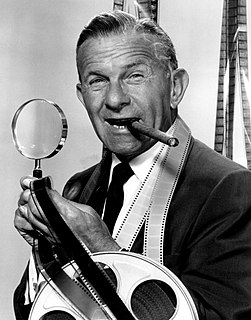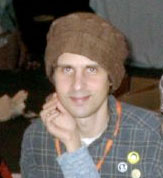A Quote by George Burns
I'd say that about 82 percent of what I write is bad, but don't go by me; I'm as bad a judge as I am a writer. Look, if it were all good, you'd be paying twice as much for this book.
Related Quotes
If I write badly about blacks, homosexuals and women, it is because of these who I met were that. There are many 'bads' - bad dogs, bad censorship; there are even 'bad' white males. Only, when you write about 'bad' white males, they don't complain about it. And need I say that there are 'good' blacks, 'good' homosexuals and 'good' women?
Writers are funny about reviews: when they get a good one they ignore it-- but when they get a bad review they never forget it. Every writer I know is the same way: you get a hundred good reviews, and one bad, andyou remember only the bad. For years, you go on and fantasize about the reviewer who didn't like your book; you imagine him as a jerk, a wife-beater, a real ogre. And, in the meantime, the reviewer has forgotten all about the whole thing. But, twenty years later, the writer still remembers that one bad review.
When it comes to partisan politics, everyone is a hypocrite. And all they care about is whether it hurts or helps them ... Is it good or bad for the Democrats? Is it good or bad for the Republicans? Is it good or bad for Jews, or good or bad for blacks, or is it good or bad for women? Is it good or bad for men? Is it good or bad for gays? That's the way people think about issues today. There is very little discussion of enduring principles.
A successful poem says what a poet wants to say, and more, with particular finality. The remarks he makes about his poems are incidental when the poem is good, or embarrassing or absurd when it is bad and he is not permitted to say how the good poem is good, and may never know how the bad poem is bad. It is better to write about other people's poetry.
When I'm writing, I'm thinking, "Well, this might be a book that I'll always be happy with, and certainly readers will be happy with." But another part of me knows that when I'm past the stage of writing, the book is gonna have good things about it, bad things about it - probably more bad than good. I just know that. That's who I am.
With my friends, it was always essentially true stories. That's how I always felt about doing King-Cat. This is something that really happened, whether it makes me look good or bad, or someone else look good or bad. This is what happened, and it's my job in life to write it down. Nowadays, I'm a lot more conscientious about it. I'm not out to attack somebody in print.
Being critical of art is a way of showing art respect. No sports writer would say, "Well the Yankees had a great season this year." No food critic would get a bad meal and say, "Oh, it was so lovely." It always strikes me as odd when people say, "Why do you write negatively about any art?" I think that everybody has mixed feelings about everything - even Goya. I mean, I look at Rembrandt sometimes and I hear a voice in my head go, "It's pretty brown."
We have so much access to one another through technology and everything else, that we're very much used to people being real. When folks go on TV and they're basically acting - if they were good actors they'd be acting and paid for it for a living, but they're not good actors. When we see bad acting, it doesn't look like bad acting, it looks weird, and we are turned off by it. I'm not talking about anybody in particular, that's just politics right now. This generation, I feel like, has incredible bullshit detectors.
If you want to write about a person who isn't nice, people say, "This is a bad book. It's about somebody I couldn't stand." But that's not the point. You don't have to like a character to like a book. Most of the time, people would misjudge and say, "I didn't like the book." No, you didn't like the character. That doesn't make it any less interesting of a book. In fact, to me, it makes it more interesting.
So many businesses get worried about looking like they might make a mistake, they become afraid to take any risk. Companies are set up so that people judge each other on failure. I am not going to get fired if we have a bad year. Or a bad five years. I don’t have to worry about making things look good if they’re not. I can actually set up the company to create value.


































